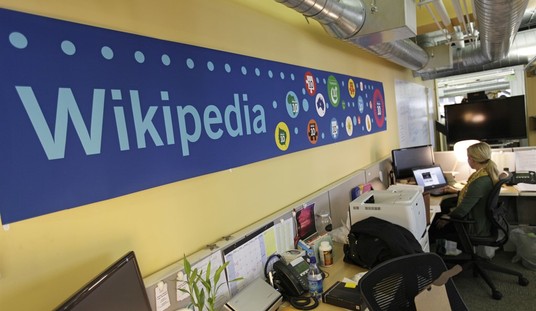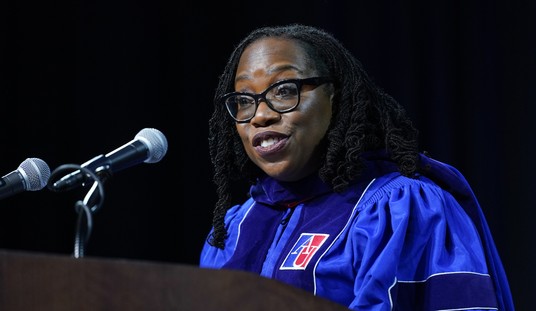I fully expected an argument over the nature of rights when it comes to health care and health insurance. After all, politicians on the Left (and some on the Right) have demagogued on the notion of a “right” to health care for decades, apparently unaware of what “rights” mean. Today, though, in a reductio ad absurdum that only the UN and the BBC could take seriously, a new survey shows that 80% of 27,000 adults in 26 countries believe Internet access to be not just a right, but a fundamental right (via Allahpundit and Finding Ponies):
Almost four in five people around the world believe that access to the internet is a fundamental right, a poll for the BBC World Service suggests.
The survey – of more than 27,000 adults across 26 countries – found strong support for net access on both sides of the digital divide.
Countries such as Finland and Estonia have already ruled that access is a human right for their citizens.
International bodies such as the UN are also pushing for universal net access.
Far be it from me to oppose universal access to the Internet; I’d welcome our new readers with open arms. However, I’d assume that people would pay for that service as they do with any other service in their lives, be that car repair, pedicures, veterinarians, or chimney sweeps. None of these are rights in the sense that free speech is a right, but some seem to confuse one with another:
“The right to communicate cannot be ignored,” Dr Hamadoun Toure, secretary-general of the International Telecommunication Union (ITU), told BBC News.
The right to speak springs from the innate sense of owning one’s self rather than being a property of the state, which means that each individual has the right to their own thoughts and to express them. That right doesn’t extend to publication, however, which is where Toure’s argument runs off the rails. If one wants to get published, then either one has to own the means to publication or pay someone else for the service. After all, no one has the right to confiscate someone else’s printing press in order to get published.
Last year, I wrote an extensive column on the nature of rights for AIP in terms of health care. Those columns are no longer available on the AIP site, but I’ll excerpt the central point of the piece:
Rights cannot be confiscatory in a society that respects the individual right to property. That’s why none of the enumerated rights in the Constitution involve confiscation. Americans have the right to free speech, but they do not have the right to demand publication in a newspaper, nor do they have the right to demand that other people listen when they speak. The right to free expression of religion does not involve occupying someone else’s church and using it to your own ends. You have the right to keep and bear arms, but you do not have the right to demand free or publicly financed weaponry. All of those examples involve confiscating someone else’s property or services, whether done through the government or by force individually.
That brings us to the notion of the “right” to health care. As human beings, we want to see people succeed to the point where they can feed, clothe, and care for themselves independently, as that establishes true personal freedom. However, none of us have the right to confiscate the services of a doctor or nurse without their consent, and without their ability to set a price for their time and expertise. We don’t have the right to walk into a grocery story to demand apples when we’re hungry, either …
Arguing that we have a right to health-care goods and services disconnected from our individual ability to provide that compensation takes us down a much different path than that envisioned by the founders. It owes much more to schools of thought where private property rights have little or no meaning, where the individual gets subsumed by the society in which he lives, and where all property belongs to the people as a whole. We have seen massive experimentation with those systems in the 20th century, and they had several points in common: they resulted in a sharp decline in individual liberty, in production, and in standards of living.
I would agree that free speech is a fundamental right. I would also agree that health care is a critical concern for every human being, and that each should plan accordingly for it. But to call Internet access a fundamental human right is not just wrong, but completely absurd. What did we do before broadband — live in complete isolation and tyranny? Do parents who restrict Internet access from their children commit some sort of abuse for being safe? The only point proven in this study is that 80% of adults in the West have no real concept of what rights are or from where they originate.








Join the conversation as a VIP Member